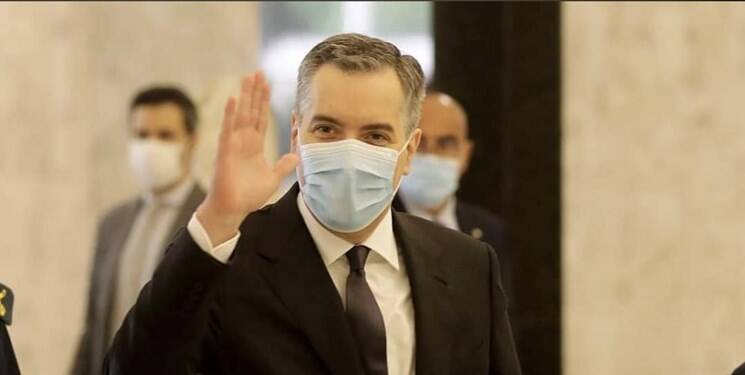On Saturday, September 26, Mustapha Adib, who had been appointed to form the cabinet less than a month earlier resigned, saying he could not fulfil the task of forming a government. He apologized for failing to meet the demands of the Lebanese people to establish a reformist government. Hours after the announcement of Mustapha Adib’s stepping down those close to the French president said that Adib’s resignation was the result of “a collective betrayal of the Lebanese political parties.”
Reacting to the resignation, French President Emmanuel Macron also said the Lebanese groups had explicitly opposed respecting their commitment to France and the international community. According to Macron, Lebanese officials preferred individual interests to national interests. The French president also said that former Lebanese Prime Minister Saad Hariri made a mistake to add tribal criterion to the distribution of ministerial posts; there was no such a thing as tribe in that initiative.
In fact, Mustapha Adib’s refusal to form government is the result of some domestic, regional and international events. Internally, the sabotage of the triangle of Saad Hariri and Fouad Siniora, former Lebanese prime ministers, and Samir Geagea, Leader of the Lebanese Forces, in the process of forming a technocrat and non-political government should not be ignored. Hariri, Siniora, and Geagea, after appointment of Mustapha Adib as the Prime Minister of Lebanon, set new conditions for him. These three influential Lebanese figures called on the Adib government to put key ministries at the disposal of March 14 Movement Alliance and refrain from participating the March 8 Alliance. But since Mustapha Adib sought to form a technocrat government far from traditional Lebanese tribal demands, he opposed Hariri, Siniora and Geagea’s request. In the regional dimension, Saudi Arabia and the UAE made their financial assistance to the new Lebanese government conditional on the disarmament of the Hezbollah, which was opposed by the proposed Prime Minister Mustapha Adib, President Michel Aoun and Lebanese Parliament Speaker Nabih Berri. In this crisis, Saudi Arabia is seeking to return Saad Hariri to power. Therefore, Riyadh has played a role in sabotaging formation of the government, and its attempts are aimed at re-appointment of either Fouad Siniora or Saad Hariri as prime minister.
In international dimension, France had asked Mustapha Adib’s government to hand over the posts of Minister of Foreign Affairs, Minister of Finance and Minister of Defense to the figures with dual Lebanese-French nationalities. However, despite the fact that Mustapha Adib has a French wife and holds dual French citizenship, he opposed the proposal.
It should be noted that France considers itself the kind mother of Lebanon and has always tried to resolve crisis based on its own patterns and interests in the event of a crisis in Lebanon. Therefore, it is possible that within the next days a high-ranking French political figure visit Beirut in order to resolve the crisis of the formation of the Lebanese government. The best scenario for France in the case of Lebanon is that persons like Adib or Hassan Diab who are inclined towards France be appointed.
France is reluctant with regard to the appointment of Hariri as Hariri’s time has expired for France, and Paris is looking for a figure with less political and financial corruption.
The United States also openly called on Mustapha Adib to remove Hezbollah from the Lebanese power structure as a first step, which was opposed by Mustapha Adib, Michel Aoun and Nabih Berri.
However, in this process, Hezbollah actually played the role of a balancing hammer. Although Hezbollah has the most parliamentary seats, it has never sought its shares in the power structure, but what is important for it is to maintain its popular and social status.
Therefore, as a result of these pressures and after 3 weeks of consultations and bringing formation of the cabinet to a deadlock, Mr. Adib withdrew from continuing his task.
The most likely scenario Lebanon is presently faced with is not to allow the prime minister proposed by Michel Aoun to form a government without the consent of Saad Hariri, Fouad Siniora and Samir Geagea, and finally with the widening of political vacuum, the Lebanese President will be forced to appoint Saad Hariri to form the cabinet.
However, the Lebanese people also have the experience of doing things better in the absence of a stable government and run their affairs better than in the presence of a government.










0 Comments